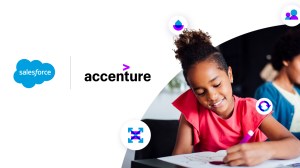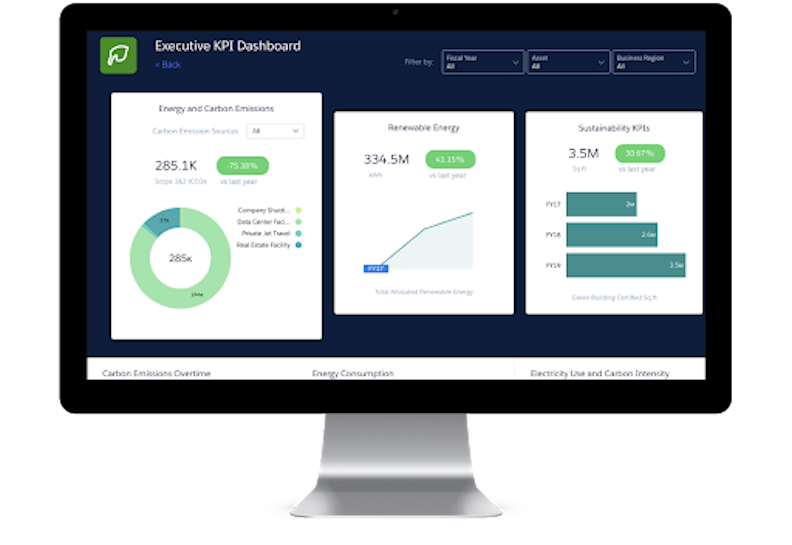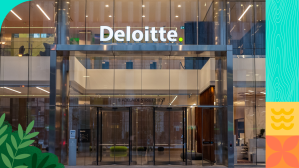Today, nearly 90 percent of customers expect corporations to live up to a set of values higher than shareholder return alone. Environmental social governance (ESG) is now a business imperative, and the companies leveraging the combination of sustainability and technology are 2.5x more likely to be among tomorrow’s strongest-performing businesses.
Today, Accenture and Salesforce announced they are expanding their alliance to help companies embed sustainability into their business, meet growing customer and stakeholder expectations, and contribute advancing the United Nations Sustainable Development Goals (SDGs)
Q. What are the UN Sustainable Development Goals (SDGs)?
The SDGs are the world’s to-do list for helping people and the planet. Adopted by 193 countries, the 17 SDGs measure the collective progress against the world’s most pressing challenges, including those related to poverty, inequality, climate change, environmental degradation, peace and justice.
In September 2019, world leaders called for a Decade of Action and delivery for sustainable development, pledging to mobilize financing, enhance national implementation and strengthen institutions to achieve the Goals by the target date of 2030, leaving no one behind.
Salesforce is committed to achieving Goals 4: Quality Education; 5: Gender Equality; 7: Affordable and Clean Energy; 8: Decent Work and Economic Growth; 11: Sustainable Cities and Communities; and 13: Climate Action.
Q. What is Environmental Social Governance (ESG)?
Environmental Social Governance (ESG) is a self-regulating model that helps an organization be socially accountable — to itself, its stakeholders, and the public. By practicing corporate social responsibility, also called corporate citizenship, companies can be conscious of the kind of impact they are having on all aspects of society, including their economic, social, and environmental impacts.
Q. Why is ESG important to businesses?
Aside from helping to address global inequality, sustainability can drive business success. Research shows that companies with high ESG ratings have a lower cost of debt and equity. ESG can also drive consumer preference. McKinsey research shows that customers say they are willing to pay an additional 5% for a green product if it meets the same performance standard of a non-green alternative.
A strong ESG focus can help companies attract and retain quality employees, enhance employee motivation by instilling a sense of purpose, and increase productivity overall. Among other advantages, if done right, it can also help combat rising operating expenses, such as the cost of water or carbon.
Q. What is Salesforce Sustainability Cloud?
Salesforce Sustainability Cloud is a carbon accounting product that gives businesses a 360-degree view of their environmental impact and provides data-driven insights to help accelerate the world’s efforts towards carbon neutrality.
Salesforce Sustainability Cloud enables businesses to:
- Reduce emissions with trusted analytics from a trusted platform. Analyzing carbon emissions from energy usage and company travel can be daunting and time-consuming. But with data flowing directly onto one platform, businesses can efficiently quantify their carbon footprint and form a climate action plan.
- Take action with data-driven insights. Offering regulatory agencies a clear snapshot of energy usage patterns improves trust with customers, employees, and potential investors.
- Tackle carbon accounting audits in weeks instead of months. Using preloaded datasets to accurately assess carbon accounting streamlines data gathering and climate action plans with embedded guides and user flows.
- Empower decision makers with executive-ready dashboard data. Providing rich data visualization and dashboards to evaluate corporate environmental impact, track energy patterns and emission trends helps decision makers better understand and create a plan to drive sustainability solutions.
Q. Why are Salesforce and Accenture expanding their partnership?
The powerful combination of Accenture’s Sustainability Services, Salesforce Sustainability Cloud, and Salesforce Customer 360 will, for the first time, bring sustainability to the front office and provide the C-suite with true visibility into their company’s historical and real-time ESG data.
Companies will be able to track, measure and act on a range of sustainability initiatives, including reporting on carbon usage, supporting customer engagements, creating positive consumer experiences, meeting regulatory requirements and developing new business models.
Salesforce Sustainability Cloud, built on Salesforce Customer 360, will provide a trusted platform that gives customers a 360-degree view of their corporate environmental impact to help them measure and manage their carbon footprint and transparently report investor-grade climate data.
Accenture will help integrate Salesforce Sustainability Cloud into their business strategies, operating models, technologies, and core processes and systems with industry-specific requirements and develop sustainability insights that scale across organizations and their ecosystems.
Q. What are Salesforce’s sustainability Commitments?
At Salesforce, we consider the environment to be one of our key stakeholders. We believe that the business of business is to improve the state of the world, and we work to make sure Salesforce is a platform for change through serving the interests of all our stakeholders — employees, customers, partners, communities and the environment. We are leveraging our people, technology and resources to help environmental causes around the world.
We’re working to play a meaningful role in creating a sustainable, low-carbon future for all by:
- Having set a 1.5°C science-based emission reduction target approved by the Science Based Target Initiative.
- Delivering a carbon neutral cloud to our customers.
- Pursuing 100% renewable energy for our global operations by 2022.
- Advocating for policies that set the planet, and the geographies the company operates in, on a just path to a low-carbon economy.
- Working with 60% of our suppliers to set emission reduction targets
- Tapping into the full power of Salesforce to support and mobilize the conservation, restoration, and growth of 100 million trees by the end of 2030.
- Actively pursuing green building certification for global office spaces.
Q. Where can you go to learn more?
To learn more about how business can be the greatest platform for change, check out this website.
To learn more about the Salesforce Accenture partnership, check out this release.


















